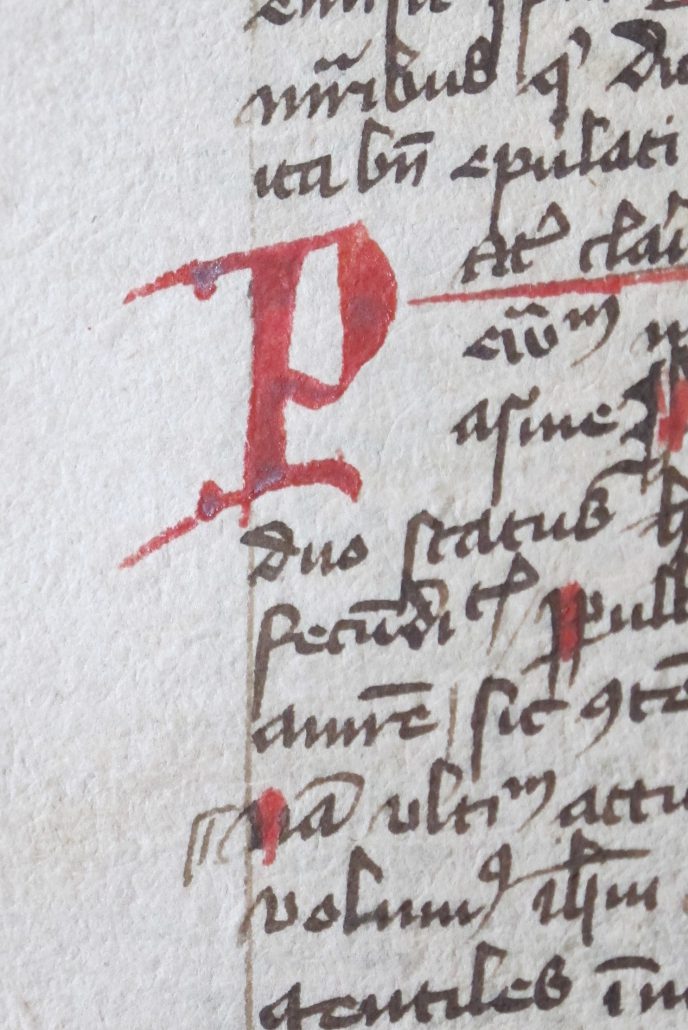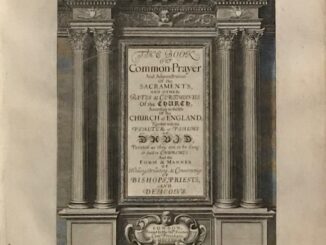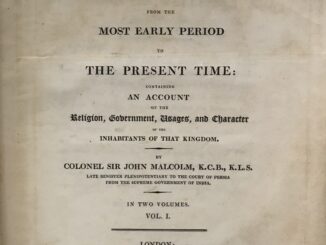Mark McKillion, Ulster University MA History graduate and volunteer for the Library in 2022, carried out research on the manuscript Commentario Super Boetrii Opus De Consolation Philosophiae by Pietre d’ Allgaro from 1420 (object ID P001941638).
You can adopt this manuscript for £500, and support the work of the Library, caring for our wonderful collections, and inspiring present and future generations!
In “The Death of Boethius and the Consolation of Philosophy”, Danuta Shanzer highlights the debates regarding the Roman scholar Boethius and the circumstances behind the development of his last work; in short, there have been multiple contrasting theories interpreting his statement that he was currently confined in an unspecified location, a scenario which be interpreted as an example of “one of the climaxes of the self-righteous and self-pitying tirade which comes well before Philosophy administers her educative draught.”
This theory is corroborated by Edmund Reiss, who suggests that the excess of imaginary detail in the Consolation undermines its credibility as a historical document. For example, he highlights the fantastical imagery used in the ‘Anonymous Valesianus’, which includes an account of a woman giving birth to four dragons (dracones), as well as the various marvels mentioned by Procopius in connection with the final days of Theodoric.
Therefore, Reiss suggests that the various accounts used in the Consolation were intended to represent Boethius’ inner musings regarding human vices such as power, wealth and pleasures, where he thereby reaches the conclusion that his ‘prison’ is a purely moral state rather than a physical reality.[1]
Furthermore, John Lamont highlights that Boethius was himself an active philosopher, who was therefore likely to have worked on the Consolation because he understood that he had the opportunity to gain both inspiration and motivation from the multiple facets of his craft. Indeed, Lamont also notes that some of the arguments made by Boethius within the Consolation can be traced back to the works of various pagan philosophers.
According to Augustine of Hippo, these Platonist philosophers would have possessed their own unique perspective on the nature of happiness, and therefore, there would have been no substantial disagreement between the pagans and Christians regarding the positive themes that they would have studied in the Consolation and similar works.
Boethius himself provides his own argument regarding the exact definition of happiness, which in short, the pursuit of peace and security is a vital factor for one’s own sense of fulfilment. Various common goals, such as money, power, fame or sensual pleasures, are seen as irrational because they do not fulfil “what is ultimately sought in action”.
As Boethius himself argues, the notion of happiness being characterised as a tangible goal where action must be taken towards is ultimately flawed, as it would necessitate the elimination of various candidates for not fulfilling an arbitrary ideal of happiness.[2]
[1] Shanzer, “The Death of Boethius”, pg. 352-353.
[2] Lamont, “The Consolations of Boethius”, pg. 70-72.




